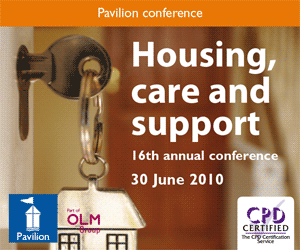
Online access is now Free. If you have an existing subscription click here for more information
Tree house
05/12/2023
MORE DETAILS are emerging about housing-related measures in today’s pre-Budget report (see story below):
- The target for the number of people helped by shared equity schemes by 2010 has been increased from 100,000 to 160,000. This will mainly be through schemes that do not involve government money but the government will be launching a competition to involve lenders in a shared equity scheme for people who want to buy 50-70% of a home rather than the current 75%
- Introduction of the planning gain supplement has been delayed until early 2009 at the earliest pending more consultation on the details (see chapter 3 of the main report)
- The Housing Corporation will be expected to make 18% efficiency savings over the next spending review period.
In initial reactions, Shelter and the National Housing Federation presented a united front in calling for new social rented housing to take priority over shared equity. Shelter’s Adam Sampson said: ‘Expanding shared equity schemes may be good news for a lucky few first time buyers and will free up some social lets for those in housing need. However, providing these schemes does nothing to help those who will never be able to afford to buy, even with government help.’ The NHF’s David Orr said: ‘Shared equity schemes alone will not end the housing misery of millions of people on moderate and low incomes.’
Up to 160,000 people will be helped into home ownership schemes by 2010, according to the report of the Shared Equity Task Force. It said this was double the orginal plan, although the target was already 100,000 at the open market homebuy launch in October. The increase is accounted for by a combination of the procurement gains expected in the spending review, greater involvement from the private sector and some expansion of the market.
Not much reaction so far to the apparently dramatic announcement on the environment and new homes. The plan is to use the Code on Sustainable Homes, which is being launched next week and will apply to publicly-funded homes, as an outrider for tightening up the building regulations, which apply to all homes, so that all new homes will be ‘zero carbon’ by 2016. Expect critics to point out that:
- Nothing is being done about existing homes, which account for most of housing’s carbon emissions
- The last time the building regulations were changed on energy efficiency they were watered down
- Although exemption from stamp duty for zero carbon homes is being dangled as a carrot, cuts in VAT or council tax might have achieved more
- Last but not least, nobody actually seems to know what a ‘zero carbon’ home is!
Previous article: Ownership plea
Next article North Shropshire ‘yes’ to transfer
All tags
Blog archive
2010
2009
- December 2009
- November 2009
- October 2009
- September 2009
- August 2009
- July 2009
- June 2009
- May 2009
- April 2009
- March 2009
- February 2009
- January 2009
2008
- December 2008
- November 2008
- October 2008
- September 2008
- August 2008
- July 2008
- June 2008
- May 2008
- April 2008
- March 2008
- February 2008
- January 2008
2007
- December 2007
- November 2007
- October 2007
- September 2007
- August 2007
- July 2007
- June 2007
- May 2007
- April 2007
- March 2007
- February 2007
- January 2007



No comments have been made on this article yet.